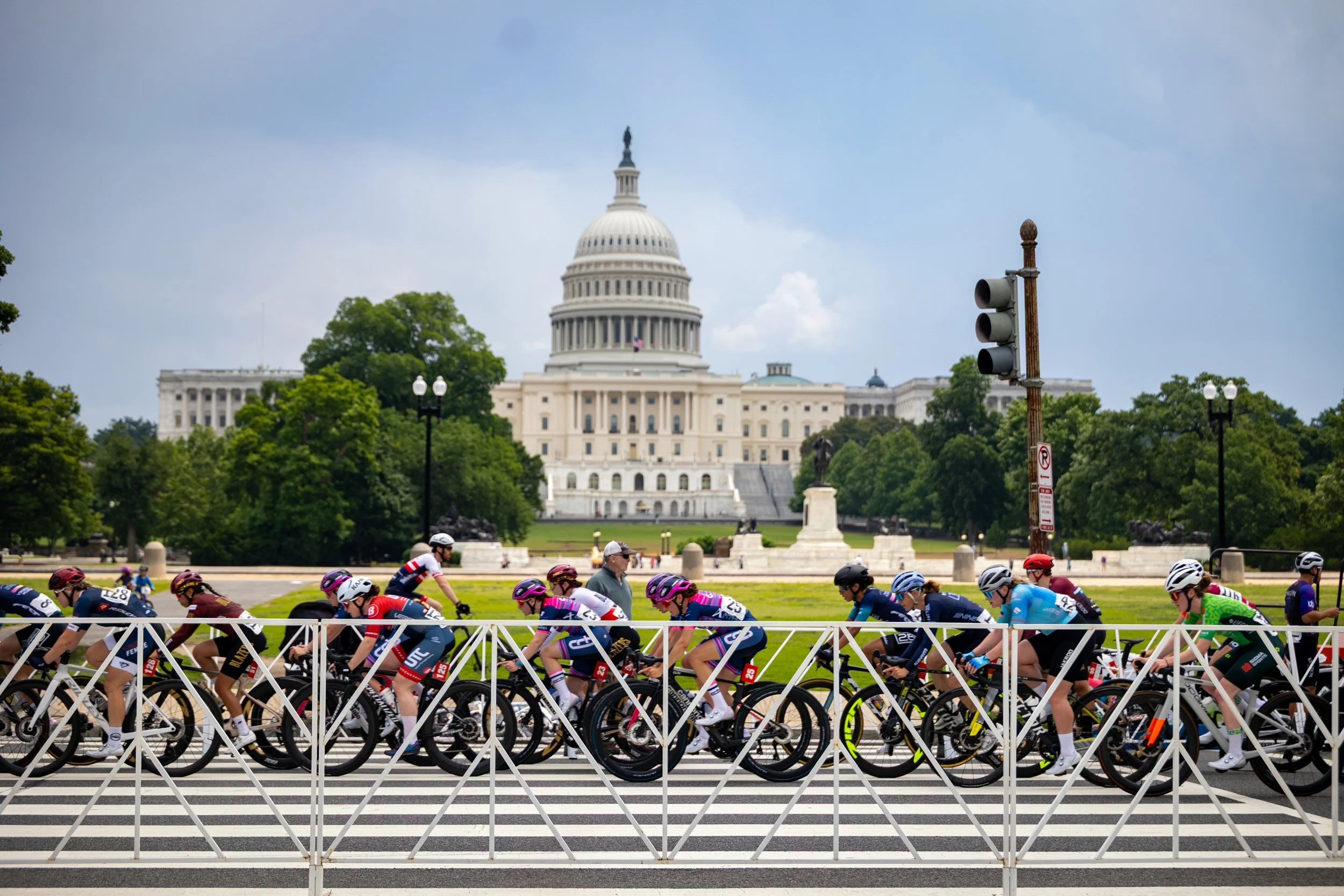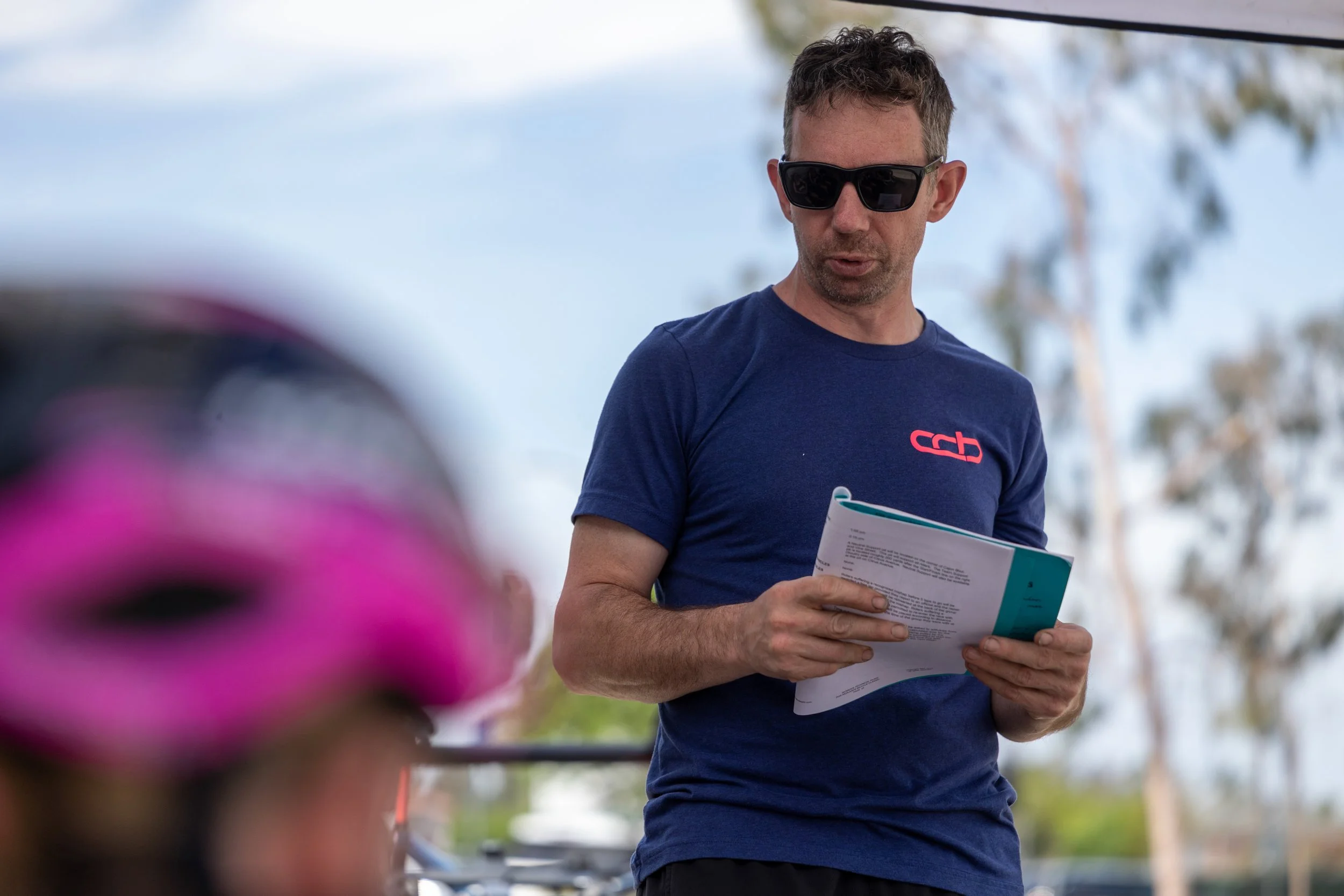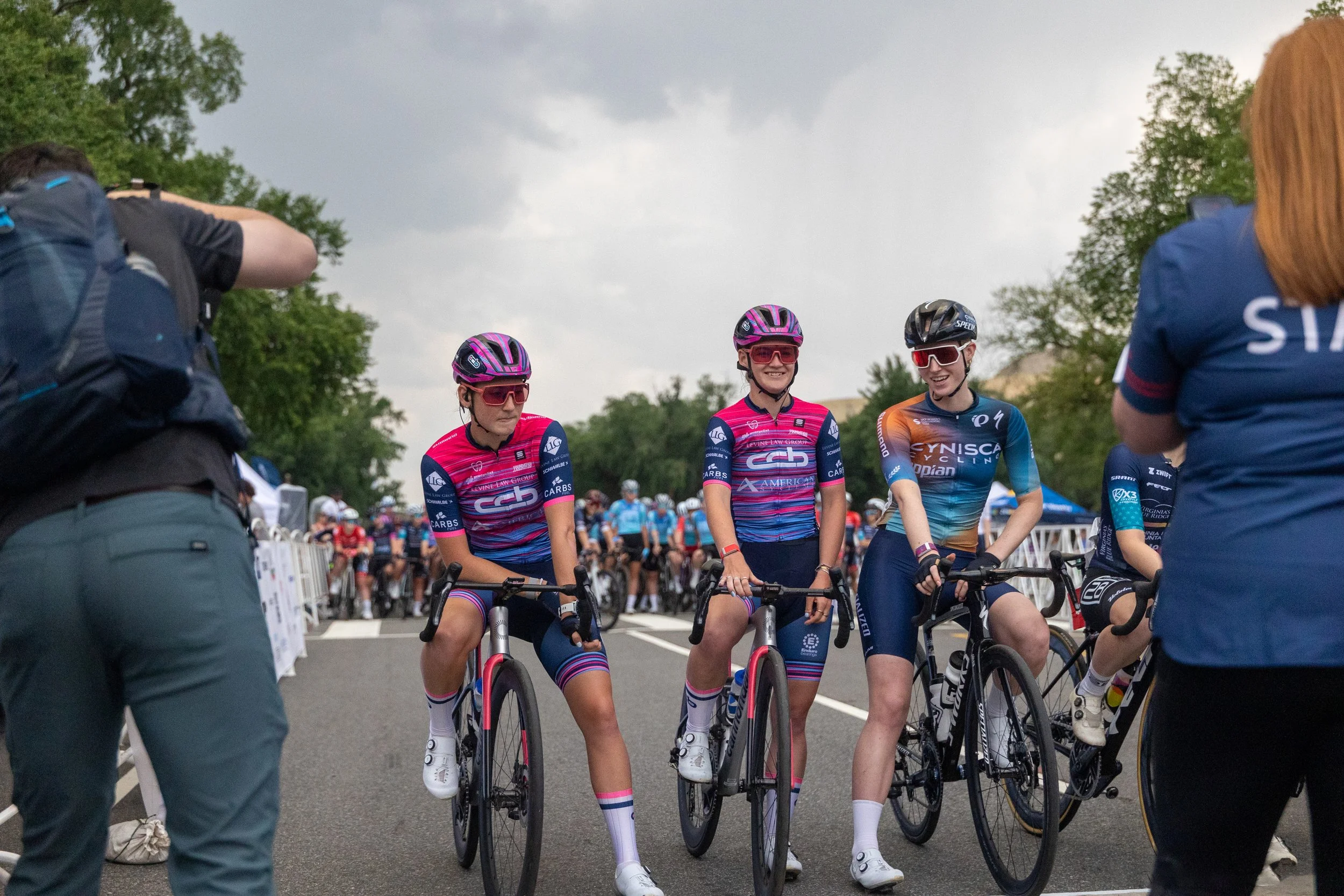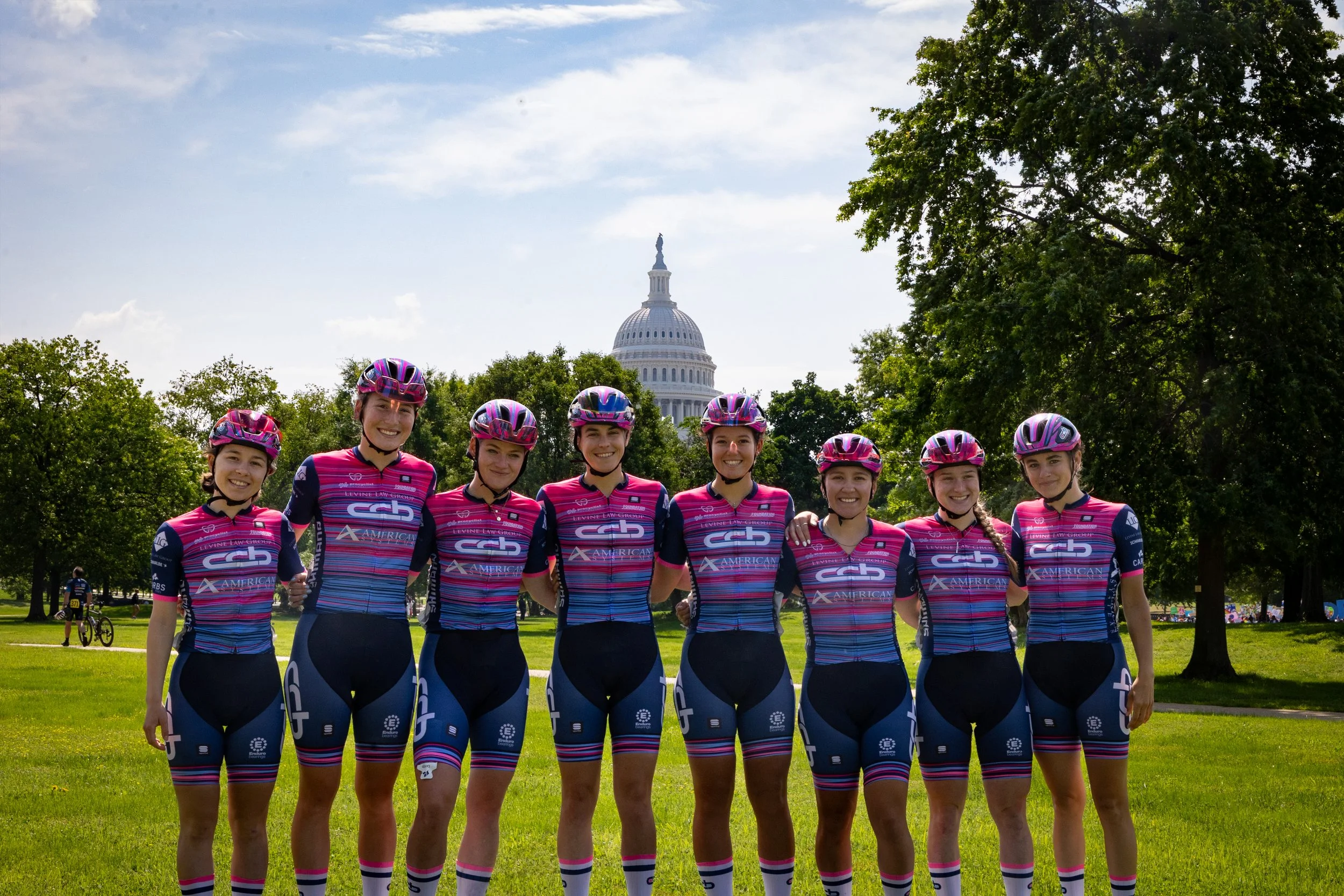Watts | Tim Mitchell
Tim Mitchell leads CCB International, one of New England’s longest-running and most influential cycling clubs. Under Mitchell’s leadership, the team has sharpened its mission around education and, more recently, women’s cycling—building one of the top U23 women’s development programs in the country. I spoke with him about the club’s history, his own path into racing, the unique challenges of development in women’s cycling, and the philosophy that drives CCB today.
Let’s start with the history. What is CCB, and how did it land in New England?
CCB stands for Cycle Club Basingstoke—a town in England where it began in the late 1950s or early ’60s. In the mid-’70s a couple of riders from that team emigrated to the North Shore of Boston. They brought the jersey with them, kept riding, and in 1976 CCB International was born.
Unusually, the club grew out of the race team, not the other way around. Today, we have around 200 members. There’s a juniors program, a U23 women’s team, a men’s club race team, and then the larger club community. It’s international in reach, but the majority of members are still clustered on the North Shore—group rides, gravel and mountain sessions, and the camaraderie that comes with it.
What about your own path into all this?
I grew up in Ashland, Massachusetts—where I still live—and my first sport was ski racing. I went to Waterville Valley Ski Academy, and that’s where I first got on a mountain bike. It started as cross-training for skiing, but it lit the spark.
After grad school in Utah I moved back east to coach Harvard’s alpine ski team. A friend dragged me to a local crit in Charlestown. I had no training, but I got hooked and started racing seriously in my late twenties. Too old to chase pro ambitions, but I found success—won amateur world championships in the time trial and road race in 2011, raced in the U.S., Europe, China. The bike took me places skiing hadn’t.
That’s how I found CCB. They were blue-collar, same jersey year after year, always aggressive in the races. No frills, no big budget, just guys who showed up and raced hard. It matched how I wanted to ride—punch above your weight, make the race, don’t sit in. When I joined, I found more than a team; I found a family. CCB wasn’t about contracts or payouts, it was about belonging, and it carried a certain pride. Over time, though, it was clear the core of the team was aging, and I started thinking about what came next. How do you keep that spirit alive? The answer, for me, was development—bringing in younger riders, giving them the same grounding and community I’d found, but also preparing them for a changing sport. That shift became the focus.
And education was at the center of that shift.
Absolutely. One of our juniors at the time was headed to the Colorado School of Mines—an intense academic track. Pro teams weren’t interested because they thought he couldn’t balance both. But balancing sport and academics was literally my job at Harvard.
So when we reoriented the team around U23 development, we made post-secondary education a requirement. University, trade school, apprenticeship—it doesn’t matter, as long as there’s something beyond the bike. That principle is written into our bylaws as a nonprofit.
It’s performance in a different sense: keeping riders balanced, protecting mental health, giving them another avenue for success when the bike isn’t going well. Cycling can consume you—your self-worth can get tied too tightly to results. Education keeps perspective, and it helps riders stay in love with the bike for life.
In 2022 you made another pivot—to women’s cycling.
Right. At the time, top men’s development was increasingly happening in-house on WorldTour teams. We asked ourselves: where can we make the most impact? And the answer was obvious—there was virtually no development pipeline for women in the U.S.
So we took what we’d learned and applied it. Today, the Levine Law Group–CCB U23 women’s team is one of the top development programs in the country. We spend a month every year in Belgium racing Kermesses—super technical, narrow roads, cobbles, hundreds of riders, including WorldTour pros. There’s no better classroom.
One of our riders just finished seventh on a stage of the Tour de l’Avenir Femme—the U23 Tour de France—behind six current WorldTour riders. Those kinds of results show the gap is closing.
You’ve been vocal about the unique challenges of women’s cycling.
For years, the top women in the world could win the equivalent of the Tour of Flanders and be paid nothing. That’s changed at the WorldTour level—minimum salaries came in about five or six years ago—but the base of the sport is still ignored.
There’s a difference between equality and equity. Copying the men’s calendar wholesale—same races, same lengths—might not make sense. The men have had over a century to shape their side of the sport. The women’s side is still figuring out its identity.
And then there’s the blue-collar part of development—learning to take bottles at 30 miles an hour, ride through the caravan, execute domestique duties. It’s not flashy, but if you can’t do those things you can’t finish a race. Zwift can find you an engine, but it can’t teach you how to sit safely in a 150-rider peloton. That’s where we come in.
On top of that, women’s physiology means you have to approach training and recovery differently. We talk openly about RED-S, menstrual health, bone density, and the risks of weight obsession. We don’t shy away from conversations about nutrition, fueling, or rest—they’re part of the sport. Our philosophy is food-positive: focus on watts, not weight. Short-term performance doesn’t mean much if it compromises long-term health. This is a lifetime sport, and our responsibility is to develop riders who can sustain both their athletic careers and their well-being.
When you’re evaluating young riders, what matters most?
Attitude. Personality. Work ethic. Nobody can predict what a 16-year-old will be at 22. The riders who make it are the ones who grind, who store a bad race as motivation instead of getting discouraged. Cycling is brutally hard, and progress is directly correlated with how much you’re willing to suffer and stay the course.
You’ve raced all over. What’s special about New England on a bike?
Variety and community. You want mountains? We’ve got them. You want the coast? Ride to Provincetown, loop the dunes, and take the ferry back with a box of fried fish—that’s my favorite ride. There’s a deep club culture here, not just at CCB but across the region, and it feels European in that sense. Add the seasons—fall foliage, spring bloom—and there’s nowhere quite like it.
Tim Mitchell is a former alpine ski racer and collegiate ski coach who has combined that experience with his academic background in exercise physiology to focus on U23 cycling development. While never the most “natural” athlete, his strength lay in maximizing potential—relentlessly pursuing every avenue toward improvement in his chosen sport. It’s this attention to detail and tireless work ethic that Tim now brings each day to his work with the CCB women’s team.
Conversation transcribed and condensed by Chessin Gertler | Photography by Chris Norvold





